
‘Affordable’ Housing Schemes: A Policy Dream or Smokescreen?
How Government Policies Shape Your Wallet (And Why You Should Care)
Let’s face it — financial policy can sound about as exciting as watching paint dry. But here’s the kicker: government policy is not some abstract legislative mirage floating around Capitol Hill. It has its fingers deep in your daily financial life, influencing everything from your mortgage rate to your student loan payments to — yes — the price of your morning latte. I’m Eleanor “Ellie” Cartwright — think equal parts watchdog, policy nerd, and consumer advocate — and today we’re cutting through political jargon to get to the part that matters: what this all means for you and your money.
What Exactly Is Financial Policy Anyway?
Financial policy refers to the rules, regulations, and decisions coming from our good (or not-so-good) friends in the federal government that influence the country’s economy. Broadly, it includes:
- Monetary policy — How the Federal Reserve controls interest rates and the money supply.
- Fiscal policy — How Congress and the President decide on government spending and taxation.
- Consumer protection policies — The rules aimed at ensuring you don’t get ripped off by banks, lenders, or businesses.
Each of these arenas has a direct or indirect impact on your financial freedom, stability, and opportunities. And if you think this stuff doesn’t matter unless you’re wearing a suit and carrying a briefcase — think again.
Here’s How Policy Bites Into Your Bottom Line
Let’s break it down with some real-life examples that might just reach into your wallet when you’re not looking.
1. Interest Rates and Your Debts (And Dreams)
When the Fed pulls the trigger on interest rates, it’s not just Wall Street that flinches — you do, too. That credit card balance you’ve been rolling over? Suddenly more expensive. Thinking of buying your first home or refinancing your student loans? Interest rates make or break those decisions.
Interest rates go up? Your car loan gets pricier and your mortgage approval? Well, let’s just say, not great, Bob. Interest rates go down? Borrowing gets more affordable, but your savings account returns might as well be Monopoly money.
2. Stimulus Packages: Lifeline or Inflated Bubble?
Remember the stimulus checks from the pandemic era? That’s fiscal policy in action. Those payments were more than headline news — they were lifelines. But the same policies that can put money in your bank account can also trigger inflation if not managed carefully. More money circulating without the goods and services to match? That’s how you end up paying $7.50 for a gallon of milk.
3. Taxes: You Pay, You Vote (Sort of)
Government taxation policies — income tax brackets, capital gains taxes, corporate tax loopholes — aren’t abstract figures. They’re the reason your paycheck looks like it’s been on a diet after taxes. They also decide how much help the government can give back in programs like Medicare, unemployment insurance, or student loan relief.
If you’re in the gig economy, freelancing, or running a side hustle — these tax codes aren’t just important, they determine how much you keep vs. how much you fork over to Uncle Sam. Spoiler alert: he has expensive tastes.
Where Consumer Advocacy Enters the Chat
I’m not here just to point fingers — though I do that too, diplomatically, of course. My mission — and the mission of this entire platform — is to keep these policies in check and make sure they’re designed with you, the everyday consumer, in mind. Because let’s be clear: the system isn’t always fair.
Predatory Lending: Still a Thing
The Consumer Financial Protection Bureau (CFPB) was created to make financial products safer. But the fight’s not over. Payday lenders, high-interest installment loans, and sneaky overdraft fees are still alive and well. And when legislatures roll back regulations in the name of “freedom,” it’s often your wallet that ends up shackled.
Student Loans: An Ongoing Battlefield
Government-backed student loans are a classic example of mixed signals. While forgiveness programs and income-driven repayment plans exist — they’re often tangled in so much bureaucratic red tape, borrowers can’t access the help they’re eligible for. That’s unacceptable — and yes, I said it. Loudly.
What You Can (and Should) Do About It
Look, I get it. This stuff can feel out of reach. But democracy doesn’t work if the only people at the table are wearing five-figure suits and using six-syllable jargon. Here’s how you can show up without burning your brain or your time:
- Stay informed — Read trusted sources (like this one). If a new bill affects your credit rights, retirement security, or mortgage options — trust me, I’ll tell you.
- Call your representatives — They work for you. (Yes, even the ones you didn’t vote for.) Let them know where you stand.
- Use available tools — Budget calculators, tax estimators, and complaint tools at places like the CFPB and FTC can help you keep service providers honest.
- Vote smart — Not just in federal elections — state and local measures often decide things like rent caps, property taxes, and public banking access.
The Bottom Line: Your Finances Are Political (Whether You Like It or Not)
I won’t sugarcoat it — understanding policy is hard. It’s dense, it’s boring, and it’s intentionally complicated sometimes. But ignoring it won’t make it go away. In fact, that’s when it grows teeth and bites you where it hurts: your savings account, your dreams of a home, your credit score, even your retirement plans.
So here’s my Eleanor Cartwright-certified call to action: know the rules so you can play the game — and win. Or at the very least, not get played. Because your financial reality shouldn’t be a casualty of complicated policies made behind closed doors.
If any of this feels overwhelming, you’re not alone. Need help understanding something specific or want to advocate for smarter financial policies in your community? Reach out to me. No question is too small, and no systemic injustice is too big to tackle.
Stay informed. Stay empowered. And keep your wallet where policy can’t reach it — unless it’s to stuff it with protections, opportunities, and what I like to call financial fairness.

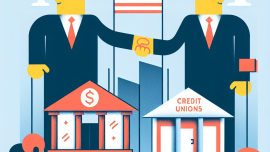

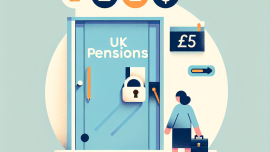
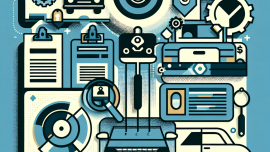
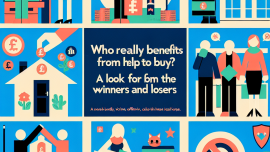

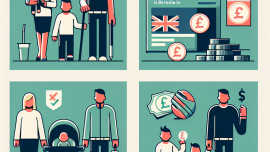
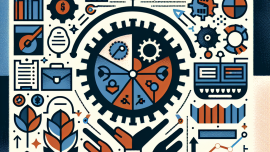
Leave a Reply